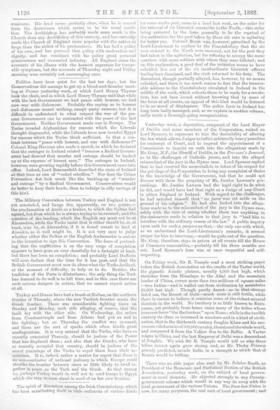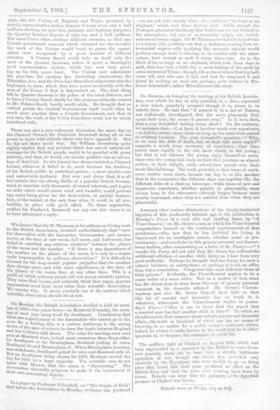There was an able paper also read by Mr. Selater-Booth,
as President of the Economic and Statistical Section of the British Association, yesterday week, on the subject of local govern- ment in rural districts. He objected strongly to any County- government scheme which would in any way do away with the local government of the various Unions. The Poor-law Union is now, for many purposes, the real unit of local government; and while the 650 Unions of England and Wales, governed by strictly representative bodies, dispose of some seven and a half millions sterling, for poor-law, sanitary, and highway purposes, the Quarter Sessions dispose of only one and a half millions. The same Union often overlaps different counties, so that any County government measure which assumed for the counties the work of the Unions would break to pieces the organi- sation now recognised by a great number of different :statutes. A County Board could take on itself only the work of the Quarter Sessions, unless it upset a thoroughly good representative system, which has now been grow- ing up for fifty years back. The Unions now administer the poor-law, the sanitary law (including vaccination), the Education Act ; and the Poor-Law Guardians administer also the 'highways, in areas which they have power to identify with the area of the Union, if that is determined on. The chief thing left to Quarter Sessions is the police of the rural districts, and to have a County Board chiefly for this purpose evidently seemed -to Mr. Sclater-Booth hardly worth while. He thought that on critical points the Central Government itself would often be much more popular than a County Government, and that in any case, the work of the Union Guardians could not be wisely interfered with.































 Previous page
Previous page